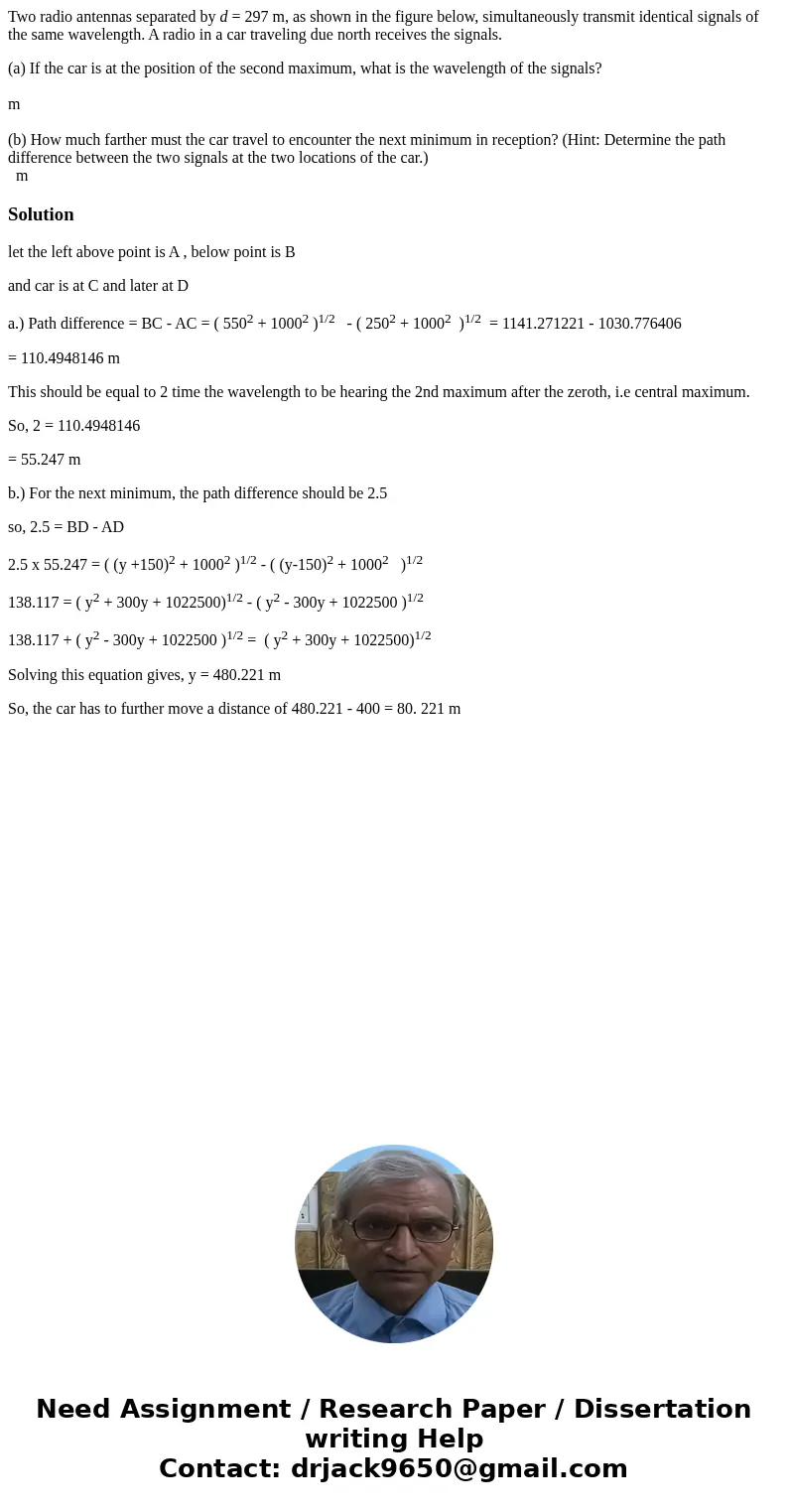Two radio antennas separated by d 297 m as shown in the fig
Two radio antennas separated by d = 297 m, as shown in the figure below, simultaneously transmit identical signals of the same wavelength. A radio in a car traveling due north receives the signals.
(a) If the car is at the position of the second maximum, what is the wavelength of the signals?
m
(b) How much farther must the car travel to encounter the next minimum in reception? (Hint: Determine the path difference between the two signals at the two locations of the car.)
m
Solution
let the left above point is A , below point is B
and car is at C and later at D
a.) Path difference = BC - AC = ( 5502 + 10002 )1/2 - ( 2502 + 10002 )1/2 = 1141.271221 - 1030.776406
= 110.4948146 m
This should be equal to 2 time the wavelength to be hearing the 2nd maximum after the zeroth, i.e central maximum.
So, 2 = 110.4948146
= 55.247 m
b.) For the next minimum, the path difference should be 2.5
so, 2.5 = BD - AD
2.5 x 55.247 = ( (y +150)2 + 10002 )1/2 - ( (y-150)2 + 10002 )1/2
138.117 = ( y2 + 300y + 1022500)1/2 - ( y2 - 300y + 1022500 )1/2
138.117 + ( y2 - 300y + 1022500 )1/2 = ( y2 + 300y + 1022500)1/2
Solving this equation gives, y = 480.221 m
So, the car has to further move a distance of 480.221 - 400 = 80. 221 m

 Homework Sourse
Homework Sourse